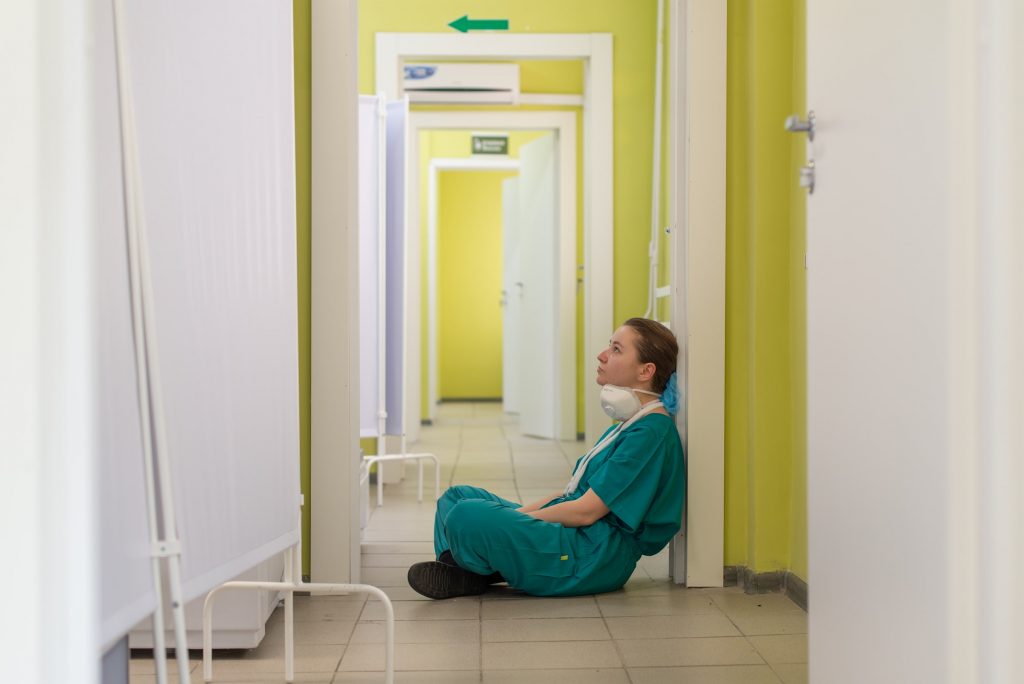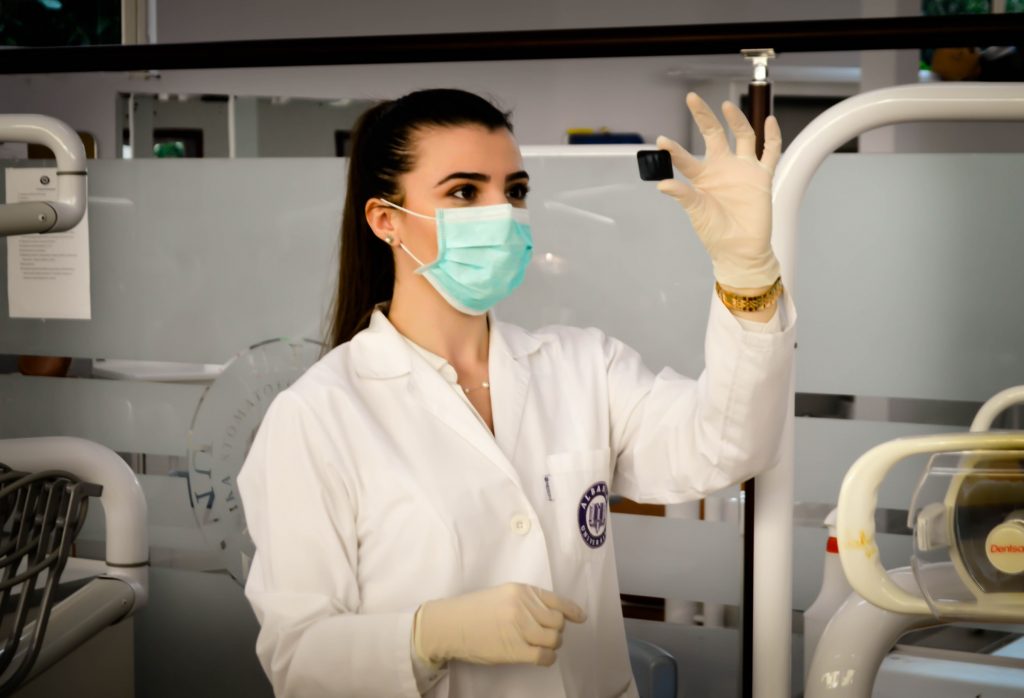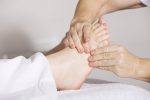
Do you want to pursue a profession that helps the elderly?
Perhaps becoming a home health aide would be the right career path for you.
Your role as a caregiver is to assist seniors who cannot care for themselves in a day-to-day manner.
As a home health aide, you may assist the elderly with personal activities such as bathing, cooking, shopping, and transportation.
Before you can answer your question, “Should I become a home health aide?”
There are some pros and cons you should know about the profession.
In the following, we will dive deep into the positives and negatives of the career of home health aides.
Page Navigation
- What Are the Pros of Being a Home Health Aide?
- 1. The Home Health Aide Profession is Growing
- 2. The Career Offers Flexibility
- 3. The Profession Pushes You to Grow as a Clinician
- 4. Relationships Developed in Home Health Care
- 5. Ability to Work in a Field Full of Compassion
- 6. The Future Entails Better Pay and Benefits
- 7. The Ability to Specialize in Your Field of Expertise
- What Are the Cons of Being a Home Health Aide?
- 1. The Home Health Aide Profession Is Full of Stress
- 2. Work Is Often Unstructured
- 3. Some Patients May Not Be Able to Meet Their Needs Within the Home
- 4. It Is a Low Paying Profession
- 5. The Profession Often Entails Great Physical Demands
- 6. Higher Exposure to Germs and Virus
- 7. You Will Be Prone to Emotional Burnout
- Should You Become a Home Health Aide?
- Pros and Cons of Being a Home Health Aide Summary Table
What Are the Pros of Being a Home Health Aide?

One of the benefits of working as a home health aide is that you can help others and make a difference in their lives.
Below you’ll discover seven positives of becoming a home health aide.
1. The Home Health Aide Profession is Growing
If you decide to become a home health aide, you’ll never be out of work.
The Bureau of Labor Statistics data reveals that nursing careers in home health are growing at a rate of 15%.
As America braces for a growing elderly population, the demand for home health aides will continue to grow.
So, you will be able to find work quickly.
2. The Career Offers Flexibility
A career that offers flexibility in your schedule is one of the best benefits for parents who have small children.
When you have a caseload, you devise a schedule that works for you and your patients.
Then, you can choose when you work and when you take time off.
3. The Profession Pushes You to Grow as a Clinician
Home health care is an independent profession.
It usually means you have to become resourceful when dealing with a difficult patient since you are alone.
Being able to practice clinically on your own helps you develop vital skills which can benefit you in your career growth.
4. Relationships Developed in Home Health Care
You become a more critical part of your patient’s life when you work in-home health care.
It’s impossible to avoid developing a personal relationship with a patient when you spend so much time with them.
Due to your connection with them, you almost feel like a family member when around them.
Who wouldn’t want a job that can lead you to develop great relationships in your life?
5. Ability to Work in a Field Full of Compassion
The home health aide profession allows you to help clients within the comfort of their own homes.
When caring for elderly patients, assisting people to recover after an injury, or managing chronic illnesses, you ensure their comfort.
Usually, when someone is sick or injured, they prefer to stay at home to heal.
As the one who made this possible, you will feel their gratitude and satisfaction.
6. The Future Entails Better Pay and Benefits
As the demand for home health care increases, you can expect better pay and unique benefits packages to follow suit.
Among these things could be better pay for driving time and a guaranteed salary based on hours rather than units.
You should seek out a package that fits your needs in terms of income and benefits.
7. The Ability to Specialize in Your Field of Expertise
The health care industry offers you the chance to specialize in a particular area.
So you can build a career in the field you enjoy, such as pediatrics or adult care.
Home care could put you on the right path if you are motivated by helping new parents bring their infant home from the hospital or reduce hospital visits for adults with special needs.
What Are the Cons of Being a Home Health Aide?

Of course, there are negatives to it with every good, and there’s no difference to the home health aide profession.
Below you’ll discover seven negatives of becoming a home health aide.
1. The Home Health Aide Profession Is Full of Stress
Yes, it is a heartwarming feeling to help others during their times of need, although taking care of someone else can be stressful.
If the worker is not careful, caring for the elderly or injured can become overwhelming.
Also, the home is where a person should feel the most comfortable.
In some cases, people may feel uncomfortable and have a sense of loss of independence when someone comes in and cares for them.
Which at times can cause a patient to act out and create a hectic work environment for the home health aide.
2. Work Is Often Unstructured
Unlike working at a healthcare facility, working in a person’s home can bring surprising changes out of the blue.
You may plan to do the weekly grocery shopping for a patient, but you have to add more errands to the list due to short notice.
Additionally, home health care enables patients to receive care and exercise in a familiar environment.
Moreover, it also impairs the therapist’s ability to use all available tools.
Therefore, the structured session will have to be tailored to meet specific needs.
3. Some Patients May Not Be Able to Meet Their Needs Within the Home
Even though people should receive care in their own homes in every circumstance, it isn’t always possible.
It has to do with what the individual needs to be successful.
Patients have different needs, so one person’s work may not work for another.
So receiving treatment outside of the home may require you to drive more than you like.
4. It Is a Low Paying Profession
Despite the critical role of a home health worker, the pay is often low with long work hours.
For home health aides with little or no experience, the entry-level salary is often $20,130 to $23,560.
So, starting off, you’ll only be making between $10-11 dollars per hour, which is not that great, to be honest.
However, the pay does get better when you gain more experience and work within the field for a few years.
After working five years as a home health aide, many earn at least $18.00 an hour.
5. The Profession Often Entails Great Physical Demands
Depending on your specialty and where you work, you may find yourself working under challenging conditions.
For example, many home health aides may find themselves lifting heavy items when cleaning homes.
There may be times when you have to pick your patient up during grooming or bathing.
Also, home health aides find themselves working long hours and being on their feet all day long.
So, when you enter the home health field, make sure you’re able to commit to the physical demands of work and have a good pair of comfortable shoes.
6. Higher Exposure to Germs and Virus
Despite taking every precaution, home health aides are still at risk of contracting a virus from a patient.
In addition, home health aides must follow strict protocols to guard against dangers such as needlestick injuries since they are exposed to blood daily and other bodily fluids.
Also, as a home health aide, your job will include cleaning a patient’s home, which exposes you to more germs.
When caring for patients or cleaning their homes, you’ll have to take extra steps to lower your risk of exposure to germs and viruses.
7. You Will Be Prone to Emotional Burnout
Home health aides get a sense of accomplishment when they save someone’s life, but they also experience the pain of losing a patient.
Often, home health aides have seen more patients die than they can count.
Therefore, home health aides need support and counseling to prevent emotional burnout.
Moreover, home health aides sometimes encounter complex patients who don’t appreciate their care, treating them as servants rather than professionals.
Should You Become a Home Health Aide?

Become a hero to your clients and their families by coming to the rescue as a home health aide!
When families cannot provide for themselves, you offer tender and compassionate care for their sake.
As you can see, being a home health aide has both positives and negatives.
However, many people who decide to become a home health aide find the pros outweigh the cons and choose to continue the path.
Make sure you consider the pros and cons listed above when making your decision.
Pros and Cons of Being a Home Health Aide Summary Table
| Pros of Being a Home Health Aide | Cons of Being a Home Health Aide |
|---|---|
| The Home Health Aide Profession is Growing | The Home Health Aide Profession Is Full of Stress |
| The Career Offers Flexibility | Work Is Often Unstructured |
| The Profession Pushes You to Grow as a Clinician | Some Patients May Not Be Able to Meet Their Needs Within the Home |
| Relationships Developed in Home Health Care | It Is a Low Paying Profession |
| Ability to Work in a Field Full of Compassion | The Profession Often Entails Great Physical Demands |
| The Future Entails Better Pay and Benefits | Higher Exposure to Germs and Virus |
| The Ability to Specialize in Your Field of Expertise | You Will Be Prone to Emotional Burnout |








